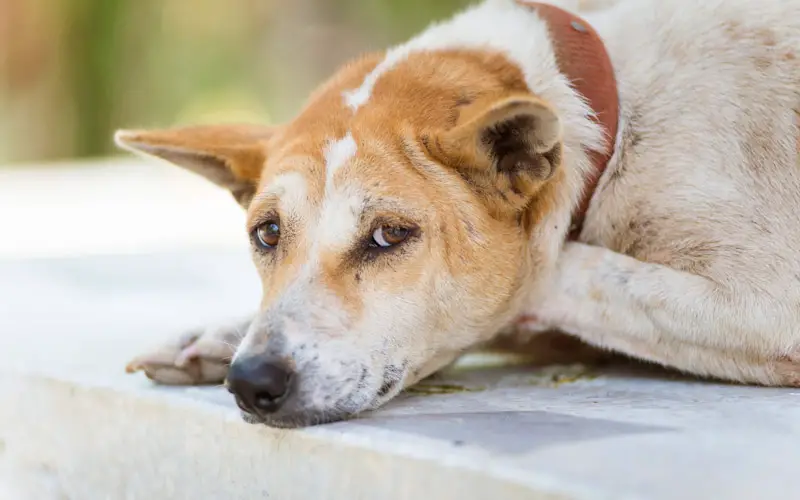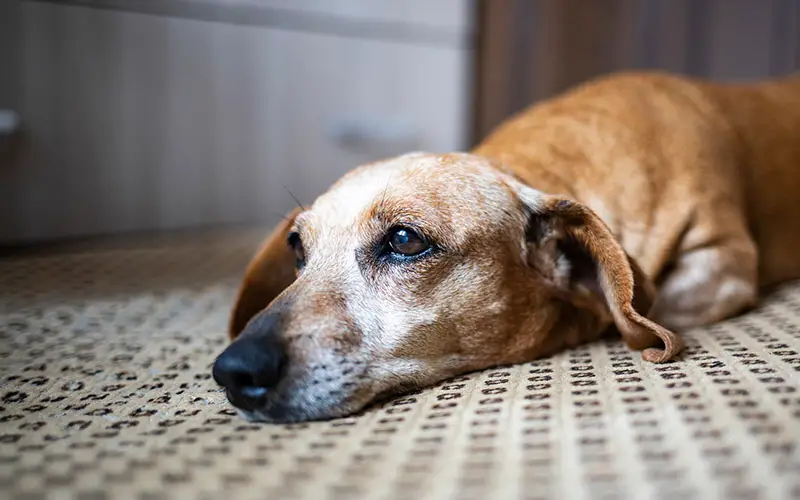Why is your dog’s poop black? Learn about causes, safe home remedies, & prevention tips to keep your pup healthy.

Black Stool in Dogs: Understanding the Causes and Seeking Help
If you notice that your dog’s stool is black, you may be wondering what it means and what you should do. Black stool in dogs can indicate a serious health problem that requires immediate veterinary attention. In this article, we will explain what causes black stool in dogs, how to treat it at home, and how to prevent it from happening again.
What Does Black Stool in Dogs Indicate?
Black stool in dogs is usually a sign of bleeding in the upper gastrointestinal tract, such as the stomach or the small intestine. The blood gets digested and turns black, giving the stool a dark, tarry appearance. This condition is also known as melena.
Common Causes of Black Stool
Some of the common causes of black stool in dogs are:
- Internal bleeding: This can be caused by trauma, ulcers, tumors, foreign bodies, or poisoning. Some of the signs of internal bleeding are pale gums, weakness, rapid breathing, and shock.
- Dietary indiscretion: This means that your dog ate something that he shouldn’t have, such as garbage, bones, chocolate, or human medications. This can irritate the stomach lining and cause bleeding.
- Medications: Some medications, such as aspirin, ibuprofen, or steroids, can cause stomach ulcers and bleeding in dogs. Always consult your vet before giving your dog any medication, and follow the dosage instructions carefully.
- Parasites: Some parasites, such as hookworms, can attach to the intestinal wall and suck blood, leading to anemia and black stool. Other parasites, such as whipworms, can cause inflammation and bleeding in the colon.
- Other medical conditions: Some diseases, such as kidney failure, liver disease, or pancreatitis, can affect the blood clotting ability of your dog and cause bleeding in the digestive tract.
When to See a Veterinarian Immediately
Black stool in dogs is a serious symptom that should not be ignored. If you notice any of the following signs along with black stool, you should take your dog to the vet as soon as possible:
- Vomiting blood or coffee-ground-like material
- Loss of appetite or weight
- Lethargy or depression
- Abdominal pain or swelling
- Fever or dehydration
- Difficulty breathing or collapse
Your vet will perform a physical exam and run some tests, such as blood work, fecal analysis, x-rays, or endoscopy, to determine the cause and severity of the bleeding. Depending on the diagnosis, your dog may need medication, surgery, or blood transfusion to treat the underlying condition and stop the bleeding.

Home Remedies for Black Stool in Dogs (Use with Caution, Advise Vet Consultation)
If your dog has black stool but is otherwise acting normal, you may try some home remedies to help him recover. However, you should always consult your vet before using any home remedies, as they may not be suitable for every dog or every situation. Some of the home remedies for black stool in dogs are:
Dietary Adjustments
- Bland diet: You can feed your dog a bland diet of boiled chicken and rice for a few days, until his stool returns to normal. This will help soothe his stomach and reduce irritation. Avoid giving him any treats, table scraps, or dairy products, as they may worsen the condition.
- Increased fiber intake: You can add some fiber to your dog’s diet, such as canned pumpkin, oat bran, or psyllium husk, to help bulk up his stool and reduce bleeding. Fiber can also help regulate the bowel movements and prevent constipation or diarrhea.
- Probiotics: You can give your dog some probiotics, such as yogurt, kefir, or supplements, to help restore the balance of good bacteria in his gut. Probiotics can also help boost his immune system and prevent infections.
Hydration Support
- Encourage water intake: You should make sure that your dog has access to fresh, clean water at all times, and encourage him to drink more. Water will help flush out the toxins and prevent dehydration. You can also add some chicken broth or bone broth to his water to make it more appealing and nutritious.
- Electrolyte replacement solutions: You can give your dog some electrolyte replacement solutions, such as Pedialyte, Gatorade, or homemade solutions, to help replenish the lost fluids and minerals. Electrolytes are essential for maintaining the normal function of the cells and organs.
Soothing the Digestive System
- Pumpkin puree: You can give your dog some plain, unsweetened pumpkin puree, either canned or fresh, to help soothe his stomach and reduce inflammation. Pumpkin is rich in fiber, vitamin A, and antioxidants, and can also help regulate the pH level of the stomach.
- Yogurt: You can give your dog some plain, unsweetened yogurt, preferably with live cultures, to help soothe his stomach and provide probiotics. Yogurt is also a good source of calcium, protein, and vitamin D, and can help strengthen the bones and teeth.
Disclaimer: These home remedies are not a substitute for veterinary care, and may not work for every dog or every situation. If your dog’s condition does not improve or worsens, you should stop using the home remedies and seek professional help immediately.
Prevention Tips for Healthy Dog Poop
The best way to prevent black stool in dogs is to keep your dog healthy and happy. Here are some tips to help you do that:
Maintain a Healthy Diet
- Feed your dog a high-quality, balanced diet that meets his nutritional needs and suits his age, size, and activity level. Avoid giving him any foods that are toxic, spoiled, or allergenic for him, such as chocolate, grapes, onions, or dairy products.
- Monitor your dog’s food intake and weight, and adjust accordingly. Overfeeding or underfeeding your dog can lead to obesity or malnutrition, which can affect his health and digestion.
- Provide your dog with fresh, clean water at all times, and change it regularly. Water is essential for hydration, digestion, and detoxification.

Regular Parasite Prevention
- Deworm your dog regularly, as recommended by your vet, to prevent parasite infestations that can cause bleeding and anemia. You can use oral or topical medications, or natural remedies, such as garlic, pumpkin seeds, or diatomaceous earth, to get rid of worms.
- Protect your dog from fleas and ticks, which can transmit diseases and parasites, such as Lyme disease, ehrlichiosis, or babesiosis, that can affect his blood and organs. You can use collars, sprays, shampoos, or natural remedies, such as apple cider vinegar, lemon juice, or rosemary, to repel these pests.
- Keep your dog away from contaminated areas, such as garbage, feces, or dead animals, where he may pick up parasites or infections. You can also use a leash, a muzzle, or a crate to prevent him from scavenging or eating inappropriate things.
Schedule Routine Vet Checkups
- Take your dog to the vet for regular checkups, at least once a year, or more often if he is older, sick, or has a chronic condition. Your vet will perform a physical exam and run some tests, such as blood work, fecal analysis, or urine analysis, to monitor your dog’s health and detect any problems early.
- Follow your vet’s advice on vaccinations, medications, supplements, or treatments that your dog may need to prevent or treat any diseases or conditions that may affect his health and digestion.
- Inform your vet of any changes in your dog’s behavior, appetite, weight, or stool, as they may indicate a health issue that needs attention.
Conclusion: Keeping Your Dog’s Digestive System Happy and Healthy
Black stool in dogs is a serious symptom that should not be taken lightly. It can indicate a life-threatening condition that requires immediate veterinary care. However, with proper diagnosis, treatment, and prevention, you can help your dog recover and prevent it from happening again.
We hope this article has helped you understand what causes black stool in dogs, how to treat it at home, and how to prevent it from happening again. Remember, your dog’s poop is a window into his health, and you should always pay attention to it. If you notice any abnormalities, such as black stool, you should consult your vet as soon as possible.
